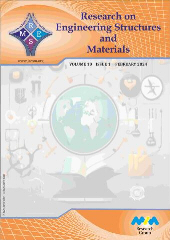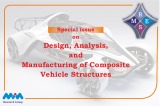Research Article
Machine learning approaches for predicting compressive strength of concrete with fly ash admixture
Lomesh Mahajan, Sariputt Bhagat
Department of Civil Engineering, Dr. Babasaheb Ambedkar Technological University, 402103, India
Keywords
Abstract
Compressive strength;
Cement;
Fly ash;
Concrete;
M-L Models;
Prediction Techniques
As worldwide environments differ from place to place, the cementitious composites change their initial characteristics. That's why it's crucial to understand their mechanical qualities for protection. In the case of concrete, the Compressive strength (C.S) is among the most crucial properties. Nowadays Machine learning (M-L) methods have been significant tools to predicting the C.S of concrete rather than traditional methods. In this study, the experimental investigation is compiled and M-L approaches are used to predict the C.S of fly ash-containing concrete. All of the materials in this research were analyzed for their chemical and physical characteristics and supervised machine learning techniques are the focus for predicting concrete C.S. Outcome prediction techniques like Artificial neural networks (A N N), Gene expression programming (G E P), and Decision trees (D-T) were studied. To run the models with proper datasets, concrete samples (cylinders) with varying mix ratios were cast and evaluated at different ages. The 07 input elements (Cement, fly ash, superplasticizer, coarse aggregate, fine aggregate, water, and curing days) were used to forecast the output element C.S. A total of 100 data points were used to predict CS. Furthermore, the experimental evidence is validated by study of Root mean error (RME), Root mean Square error (R M S E). and k-fold Cross validation (R2), The statistical tests were included to see how well the adopted model was performed. The bagging algorithm method outperforms GEP, ANN, and DT in terms of prediction accuracy, as shown by an R2 value of 0.97 vs 0.82, 0.81, and 0.78, respectively.
© 2022 MIM Research Group. All rights reserved.


